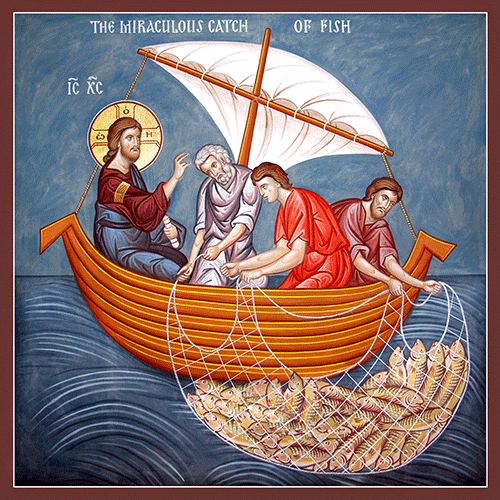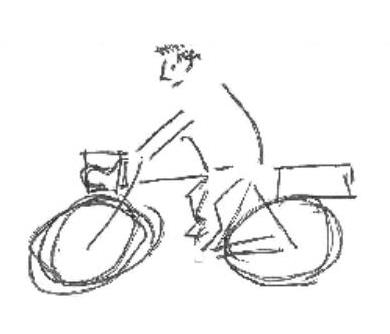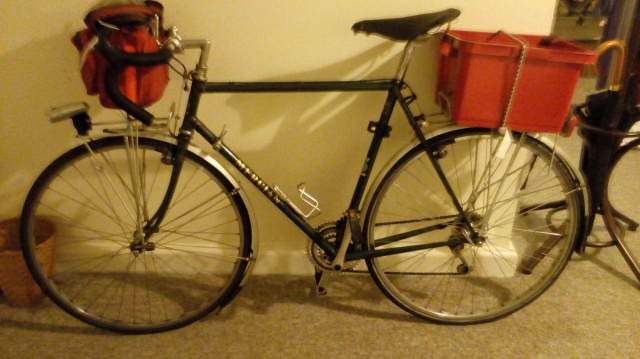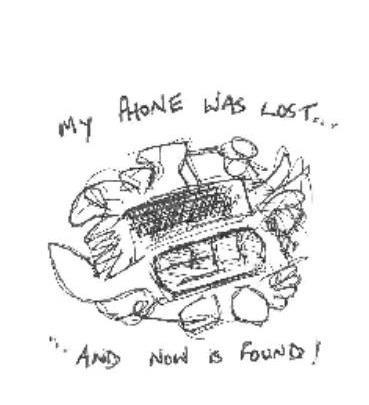This is the text of my sermon at St Aldhelm’s for the second Sunday before Lent, 24th February, 2019. I don’t think it was an especially insightful address but it received several positive comments afterwards. Perhaps its attempt to locate ourselves on that boat with Jesus struck a chord for some people.
The readings were Revelation 4 and Luke 8, 22-25
I intend to reflect on both of the readings we have heard today. The link between them may not be obvious but as the pastor in The Simpsons says to an unusually penitent, and bewildered, Bart when he asks which parts of the Bible might help him in his urgent and untypical spiritual anxiety, ‘well, it’s all good…’

Angels, one of them rather chivalric in appearance, stand guard over the west end of St Aldhelm’s Church.
The Book of Revelation is a conundrum for many Christians. In adult discussion groups I am often asked what it is about. Its references to 7 cities that were important then but are now much diminished (in one case) or non-existent (in the case of the other 6) might give us pause for thought when we assume the permanency of all that seems important in our current news or in our own circumstances. The book’s apocalyptic visions, that seem profound and pregnant in meaning to some, appear inscrutable and obscure – or perhaps even ‘under the influence’ – to others. What is undoubted is that it was written during a time of oppression, persecution and political and economic meltdown.
The observation that I offer when seeking to help others approach this last book of the Bible is that to those who feel they live in an ordered and dependable world and whose personal lives are also ordered and reliable will more likely feel the book of Revelation is a foreign and alien language, but that to those whose world – be it political, economic or personal – is falling apart, the book of Revelation will seem much more plausible and relevant. Read as part of a Bible study over coffee with friends is a very different experience to reading it, say, as a terrified survivor fleeing from war and huddled with survivors in a refugee camp. Thus, the book of Revelation forms just one of the multitudinous strands in scripture, helping ensure that the Bible can speak to everyone, and to each one of us through all the changing circumstances of our lives: a part of the Bible that will be key for you in your youth may be replaced by another part entirely as being most significant when you are older.
Today’s passage is the entire fourth chapter of Revelation. Its strange, dream-like impressions of heaven do not describe any known or experienced world. Instead they seem to suggest a deeper dimension that underlies our world. ‘Look deeper’, it seems to suggest. ‘There lives the dearest freshness deep down things’, as the Christian poet Gerard Manley Hopkins (himself no stranger to obscure and allusive language) wrote. Did you notice the song that today’s passage ascribes to the angels? They are words the author sources from the Old Testament and which we will sing later in this service: ‘Holy, holy, holy Lord, God of power and might, heaven and earth are full of your glory, hosanna in the highest…’ I emphasise those words, ‘and earth’ : God knows, and we all know, the world’s a mess. And we each know, if we are honest, that each one of us is a mess. But we believe, and we say so at every Mass, that ‘heaven and earth are full of thy glory…’
And that perhaps is a segue to our Gospel reading which in its own way reassures us that God is with us through thick and thin. Today’s extract from Luke, of the storm on the lake, recounts not simply an occurrence of long ago involving Jesus and the disciples. It is a story that invites, even demands, our participation. A fortnight ago when I last preached, Luke told us about Jesus on the shore, overwhelmed by an over-eager crowd. He turned to the young fishermen as they washed and mended their nets and asked their help so that he could address the crowd from a boat stationed a few yards from the sea’s edge. The young men thus involved perhaps began to listen and to be changed. Jesus’ impact on them took on critical, life-changing character when, having bid them set out deeper and try for a catch, their nets fairly broke as they hauled them in.

Today we are invited to accompany Jesus in one of those same boats as they set out peacefully across the vast lake known as the Sea of Galilee. That boat is you. That journey is your life’s journey. At times gentle, calm, with a following breeze to ease your progress. The storm that arises so suddenly is every unpredictable crisis that threatens your life and your happiness: every setback and pitfall, every regret and grief, every shame and shuddering guilt, every illness and anxiety and bereavement and hurt that assails and threatens to shipwreck your hopes. ‘Master, do you not care that we perish?’ And our Lord who seemed – and often seems to us – so absent in the thick of things awakes from his calm and assured slumber to quieten the wind and the waves: ‘peace, be still…do not fear, but believe…’
Some of us will have come here today in unconscious peace and security, or consciously assured of God’s presence with us. In which case, let us give thanks to God through this Eucharist whose name means ‘thanksgiving.’ Others of us will be struggling with tempests and storms, whether tangible and obvious or interior and invisible. If that be the case, let us cling on to this larger boat that is our church, our community, our support, and offer ourselves with all our bewildered struggles through this Eucharist, and let us be reminded that Jesus has authority over all the waves that threaten to overwhelm us.

May each and every one of us, then, hear with renewed encouragement, deepened humility, and strengthened faith – and join in singing with the angels and archangels and the whole company of heaven – ‘Holy, holy, holy Lord, God of power and might, heaven and earth are full of your glory…’

 ‘He shall feed me in a green pasture : and lead me forth beside the waters of comfort.’ That line did not form part of our readings today. You may recognise it as a verse from the 23rd Psalm. According to ancient Christian tradition, the ‘green pasture’ in which we feed is the Bible. If so, then our worship this morning, as always, invites us to delight in this pasture, to be nourished by the Word of Christ as we hear and explore a selection of sacred scriptures.
‘He shall feed me in a green pasture : and lead me forth beside the waters of comfort.’ That line did not form part of our readings today. You may recognise it as a verse from the 23rd Psalm. According to ancient Christian tradition, the ‘green pasture’ in which we feed is the Bible. If so, then our worship this morning, as always, invites us to delight in this pasture, to be nourished by the Word of Christ as we hear and explore a selection of sacred scriptures.



